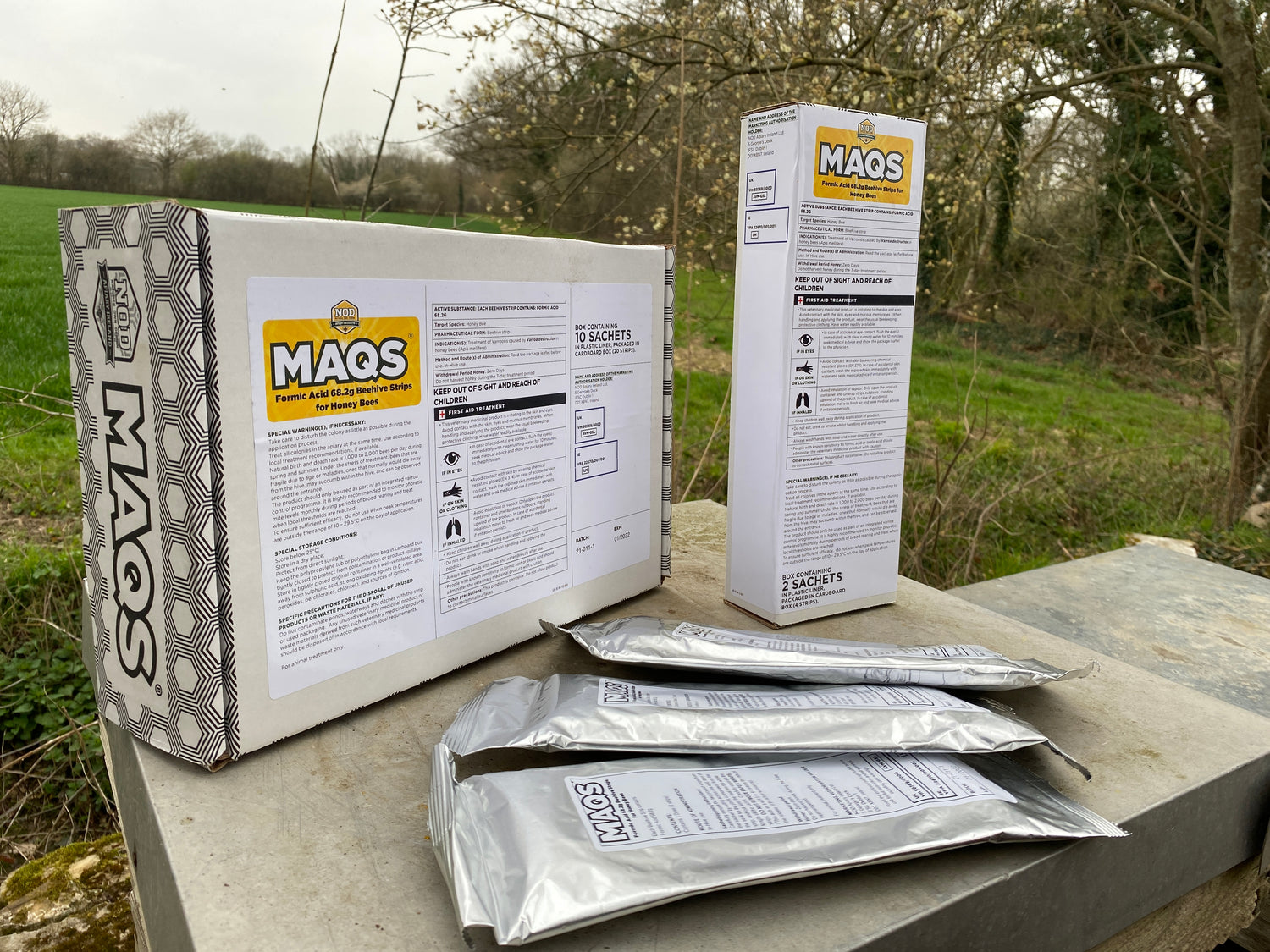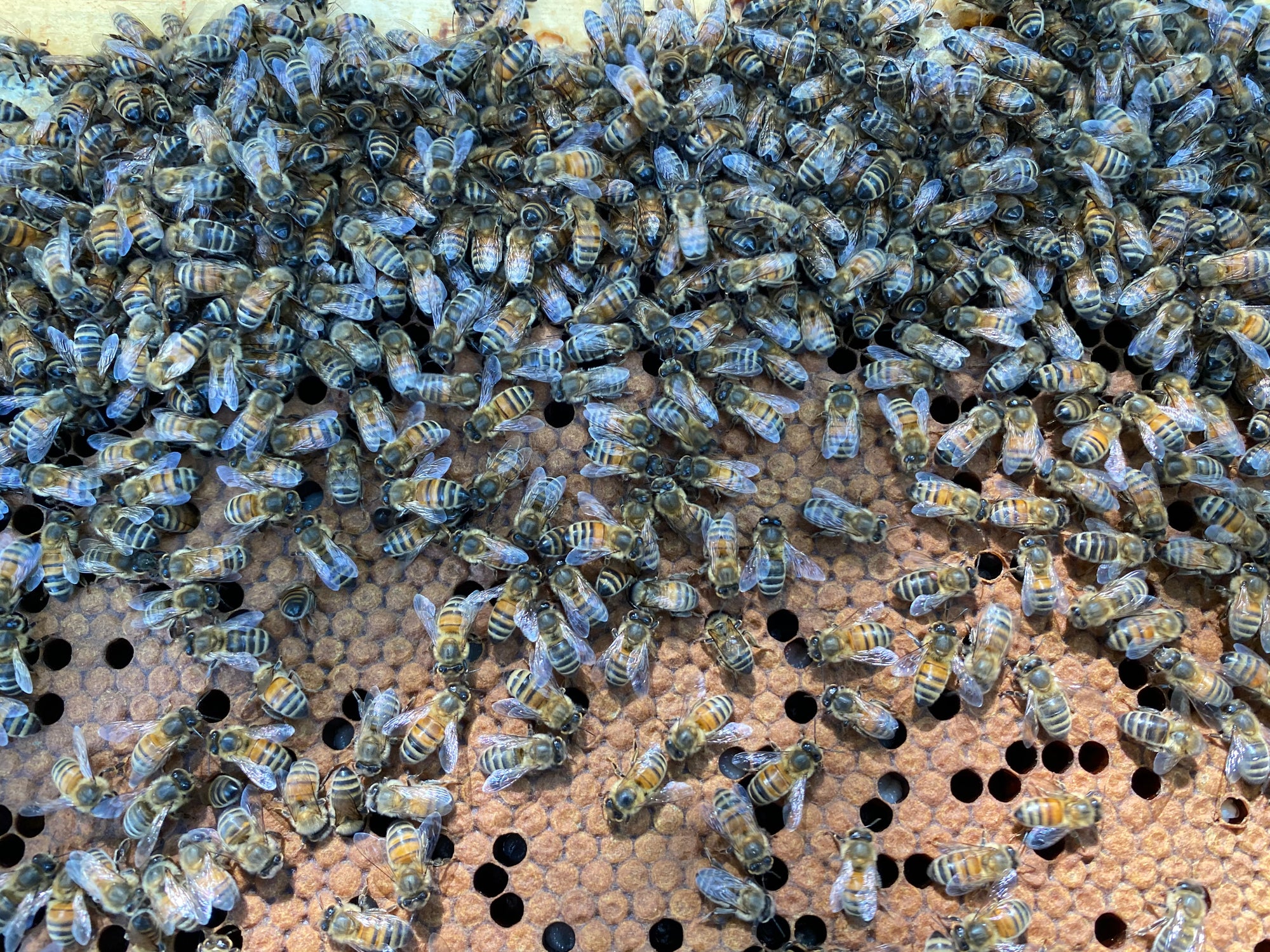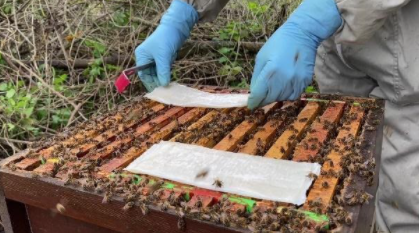Formic Acid: a biological defence to control Varroa mites
What is formic acid?
Formic acid is an organic acid that occurs naturally throughout the world. It circulates in the atmosphere as it’s emitted by forests, and is also found on the hairs of stinging nettles.
Formic acid is used by ants (hence where it gets its name, from the latin for ant ‘Formica’) and some species of stingless bees as a defence mechanism against unwanted intruders of the nest. Formic acid is also in bee food plants and in the nectar that the bees collect.
Why do beekeepers use it?
Today beekeepers use formic acid to control the population of the parasitic mite, varroa, in their hives.

Photo of a varroa mite on a honeybee
There are different forms of formic acid treatment that you can apply to the beehive, which all involve the acid.
Liquid formic acid applied to the hive with a dispenser and an adjustable paper wick has been a popular way of administering the treatment. This method of treatment does have drawbacks: the dosage can be inaccurate quite easily which can mean overdose and the treatment period can be longer.
Formic acid must be applied to the beehive correctly to stop any adverse effects, ensuring the correct amount of ventilation is used for the dosage applied.
A consistent, measured approach to formic acid is the most effective way of using it.
MAQs (Mite Away Quick Strips)
Modern beekeepers are increasingly turning to Mite Away Quick Strips or MAQS, the most popular treatment with formic acid as the active ingredient.

MAQs strip
MAQS offers several unique advantages, giving it a safer and shorter period of treatment for the beekeeper.
Penetrates the sealed brood cap
Firstly, MAQS is the only varroicide that penetrates under the sealed brood cap and kills varroa where it reproduces. This makes it a lot more effective at reducing varroa populations.

How MAQs penetrates the brood cells
No resistance
Secondly, there’s no resistance to worry about. The active ingredient in MAQS, formic acid, is not known to have mite resistance and it is very unlikely to develop this due to the general effect it has on the mite.
Can use during honeyflow
Thirdly, unlike most treatments, it can be applied when honey is on the hive. This is because the acid in MAQS is organic and not soluble in wax or honey.
The strip itself is also completely biodegradable, so can be left in the hive or taken out and put on the compost heap, where it will break down as part of garden waste.
Simply place the MAQs strips on the hive during a honey flow. There’s no reason to take honey supers off because the treatment does not leave any trace in your honey. As a beekeeper and food producer you can be sure that if you use MAQS, you will not be tainting your honey.

Simply place MAQs strips on a hive
Also tackles acarine mite
As well as being an effective treatment for the varroa mite, MAQS also kills another lesser-known mite that affects the honey bee, the acarine mite.
The acarine mite lodges itself in the honey bees’ trachea and affects the honey bee’s ability to breathe.
The fact that MAQS can also keep this pest in check as well as varroa is another plus point for this treatment.
MAQs effectiveness
With all these features considered, you can see why MAQS is a good option for any bee keepers’ pest management strategy.
MAQS is a treatment that can be used at the beekeeper's convenience throughout the active season which makes it highly desirable as a treatment for your hives.
But how effective is it?
There have been many studies that have tested MAQS; a study carried out by the university of Hawaii honeybee project highlighted the efficacy of MAQS against varroa. In colonies treated with MAQS, 90% of the juvenile mites succumbed, whereas only 18% of juvenile mites succumbed in the colonies that were not treated.
Here at Andermatt, we’ve had effective results using MAQS on hives in colonies that have had heavy varroa infestations. Colonies treated with MAQS have performed considerably better than before treatment, showing healthier brood patterns and a higher honey yield.
MAQS is now part of the Andermatt bee health portfolio and available from the Andermatt website in 2-dose or 10-dose packs for you as a bee keeper to help your bees in their battle against varroa.

MAQs strips 10-dose (also available as a 2-dose)



